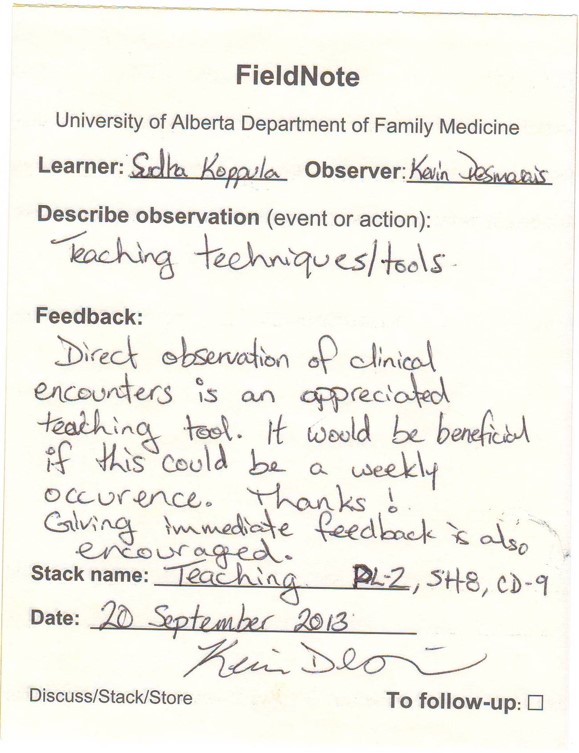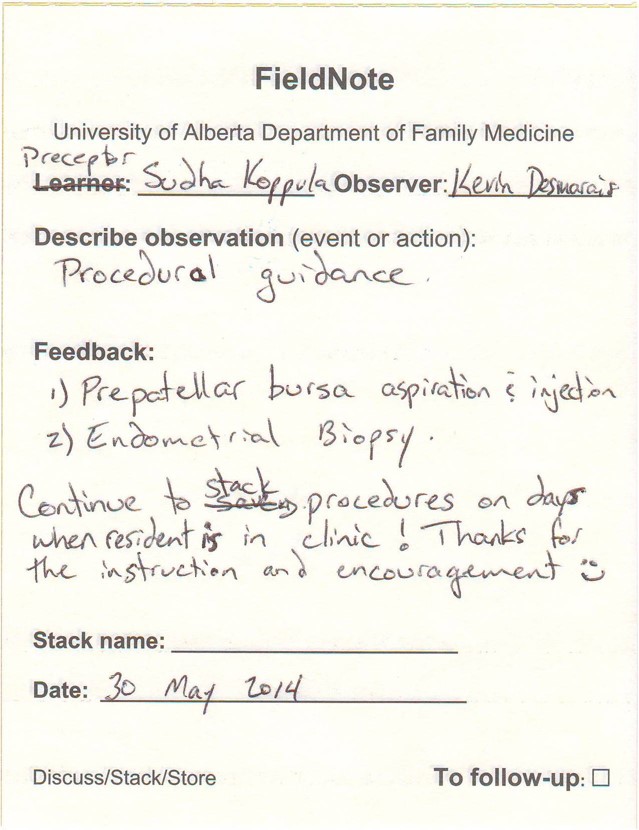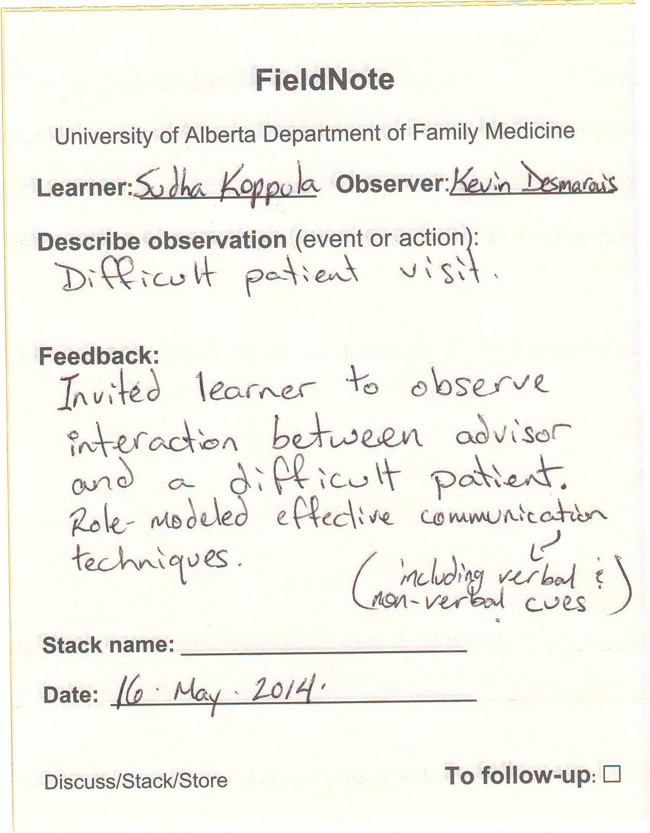



Authors
- Kevin Desmarais
- Sudha Koppula
Institution
- University of Alberta - Family Medicine - Edmonton - Canada
Timely, regular feedback to learners from clinical teachers is beneficial.
Could regular feedback from learners to teachers also be of benefit? Potentially yes!
- Teachers could receive immediate feedback on teaching practices and strategies
- Could promote reciprocity of feedback (may benefit learner-teacher relationship)
- Teachers could incorporate feedback into reflective exercises or teaching portfolios.
Over one year, postgraduate learners provided feedback to their clinical teachers.
- documented on fieldnotes (a formative feedback method in the training program)
- content and themes recorded on fieldnotes analyzed by qualitative textual analysis
- asked learners and teachers for their experience



Feedback received from learners to teachers addressed key educational concepts:
- direct observation
- teaching specific skills
- role-modelling
Learners:
Appreciated opportunity to provide immediate feedback about learning needs
Teachers:
Interested in feedback - could tailor learning needs to individual learners
Interested in the potential such documented feedback could have for reflective purposes
Formative feedback strategies can be used to provide feedback from learners to teachers
Benefits for both learners and teachers:
- encourages dialogue about the learning experience
- potential to enhance the learner-preceptor relationship
- teachers regularly receive feedback
Learner feedback to clinical teachers using fieldnotes has potential for enhancing the learning experience, for both learners and teachers
Lacasse, M., Douville, F., Desrosiers, É., Côté, L., Turcotte, S., & Légaré, F. (2013). Using field notes to evaluate competencies in family medicine training: a study of predictors of intention. Canadian Medical Education Journal, 4(1), e16-e25.
Laughlin T, Brennan A, Brailovsky C. Effect of field notes on confidence and perceived competence: survey of faculty and residents. Can Fam Physician. 2012 Jun;58(6):e352-6
Pimlott N. Competency-based education. Can Fam Physician. 2011 Sep;57(9):981, 982
Allen T, Brailovsky C, Rainsberry P, Lawrence K, Crichton T, Carpentier MP, Visser S. Defining competency-based evaluation objectives in family medicine: dimensions of competence and priority topics for assessment. Can Fam Physician. 2011 Sep;57(9):e331-40
Ross S, Poth CN, Donoff M, Humphries P, Steiner I, Schipper S, Janke F, Nichols D. Competency-based achievement system: using formative feedback to teach and assess family medicine residents' skills. Can Fam Physician. 2011 Sep;57(9):e323-30
Donoff MG. Field notes: assisting achievement and documenting competence. Can Fam Physician. 2009 Dec;55(12):1260-2, e100-2
Wald HS, Davis SW, Reis SP, Monroe AD, Borkan JM. Reflecting on reflections: enhancement of medical education curriculum with structured field notes and guided feedback. Acad Med. 2009 Jul;84(7):830-7
Epstein RM, Hundert EM. Defining and assessing professional competence. JAMA. 2002 Jan 9;287(2):226-35

